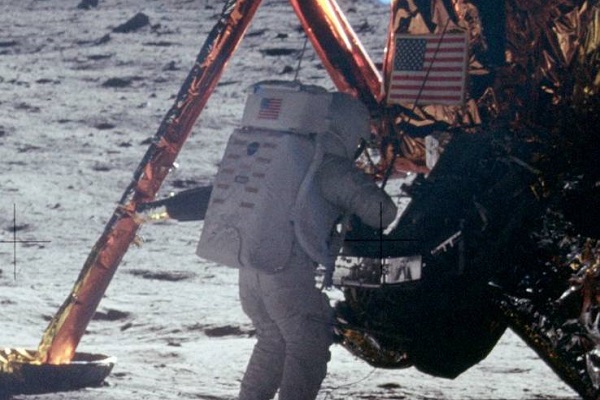
Study Shows Creationists are More Likely to Believe Conspiracy Theories
- By Kelly Frazier --
- 01 Sep 2018 --

This is the result of teleological thinking.
Researchers at the University of Fribourg in Fribourg, Switzerland, have discovered a correlation between conspiracy theory beliefs and creationist views of young Earth.[/tweetit] The discovery, made by mathematician Nicolas Gauvrit, neuroscientist Sebastian Dieguez, and social psychologists Dieguez, Sylvain Delouvée and Pascal Wagner-Egger, happened when they investigated teleological thinking. The term relates to a belief process which assumes there is a purpose to any event and rejects randomness. The researchers theorized that teleological thinking leads to an individual believing in both conspiracy theories and Earth creationist views.
Study Shows Creationist are More Likely to Believe Conspiracy Theories[/tweetthis]
A creationist is an individual who believes earth was created by God less than 10,000 years ago. 38 percent of Americans believe in such a concept pushed by the creationist lobby. According to a Gallup study conducted in 2017, 50 percent of the surveyed Protestant Christians subscribe to such a view. 37 percent of the Roman Catholics hold the same world-view. Surveys were made both in Switzerland and France where the same link was unearthed.
According to Dieguez, he and his team have stumbled upon a previously ignored common link between believing in varied conspiracy theories and the creationist beliefs. Although the two beliefs are dissimilar at the first glance, both of them have meshed with teleological thinking, a powerful cognitive bias. Teleological thinkers perceive an empirical aim and final cause perception in naturally occurring entities and events. In essence, the research showed that conspiracism is linked to teleological bias. Conspiracism is defined by the proneness of any individual to explain all socio-historical events in the light of malevolent and secret conspiracies.
Researchers conducted a total of three correlational studies and discovered compelling evidence of a definite teleological link between creationism and conspiracism. The link was independent in parts from randomness perception, religion, analytical thinking, education, age, agency detection, and politics. The worldview of any teleological person is that there is a hidden and distant involvement of a final and purposeful reason to explain the seemingly complex worldly events.
Wagner-Egger, the lead author of the study, cautioned that the findings do not imply that teleological individuals reject randomness everywhere they observe it, but in a few cases, acts of random are rejected by perceived conspiracy. Some famous conspiracies “found” out by such people include the supposed “fake” Apollo 11 landing on the moon and the hand of American Government behind the devastating 9/11 terrorist attacks.
This is exactly what I experienced in my life. With my creationist based education I easily believed in conspiracy theories that to be pulled off would need a worldwide cover up of science and history. #Skeptic #sciencetwitter #ScientificMethod #AlexJones https://t.co/dtXygFQK2f
— Matt Sifford (@_chaotic_order) August 20, 2018


















